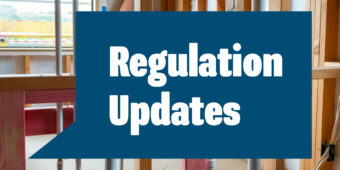Professional advice – who do you turn to?
16 Feb 2016, Business Tips, Featured, Prove Your Know How

Many business owners often wish for good business advice, but knowing where to go can be difficult. Here are some questions to consider
If your business has grown rapidly, become stagnant or evolved in another way, bringing someone with the appropriate experience on board to help can be a wise investment. While you can always ask other builders, there may be times when you think professional insight necessary.
But is expensive professional advice worth the cost?
That’s a good question and of course you would expect me to say yes. After all, it’s business coaching fees that pay my salary. However, professional advice need not be expensive and is often worth the investment.
There are many options to choose from and each one has its particular value. Here are some to consider:
Take an Institute of Directors’ Course
If you own a company where managers oversee much of the day-to-day running, you may want to develop your directing and governing abilities so you can lead with confidence.
Institute of Directors’ (IoD) courses cover many relevant topics. They are quite in-depth and intensive, but generally of short duration, so are not a major interruption to your weekly schedule.
They are also very relevant if you are a member of a committee or on the board of a trade or training association.
Further, if you run (or have run) a successful building business and think you have what it takes to help others succeed, serving as an independent director can open up a whole new career path. In this case, IoD courses will really help set you up for success.
Cost: $1,000 or more.
Add an advisory board member
In some situations, you may feel that new skills, experience and/or business insight are required. Maybe you have developed a product that you would like to market nationwide, or want to get into significant property development.
A challenge could be that you have no experience in marketing a manufactured product and organising a distribution network, or in financing developments.
So you want someone who has this particular experience and who can advise you on the steps to take. You don’t necessarily want them to own a share of the business, just give their advice for a time.
This is an advisory board member – someone who can help you make plans and execute them in areas in which you have little or no experience.
In it’s early stages, an advisory board may be just one or two professionals who meet with you once a month. As the business grows, you can add further expertise by adding new advisory board members.
Cost: Approximately $15,000 or more per year.
Talk with your accountant
Perhaps the most overlooked professional advisor for small businesses is your accountant. They might speak another language and seem to be focused on annual accounts and tax issues, but their job means they get to review the performance of hundreds of companies.
In reality they know heaps but, due to professional liability, some accountants hesitate to give advice.
This is understandable, particularly given that many business owners don’t meet with them beyond the once a year when they do their tax returns. If you don’t have a strong relationship with your accountant, they may not really know your business or how you behave in a given situation, so you can’t really expect them to give specific advice.
Organising a bi-monthly meeting with your accountant could be the first step to drawing on their assistance. Don’t be afraid to ask them to explain your financials in terms that you can understand, because such knowledge is invaluable in preventing financial blowouts.
Cost: Approximately $3,000-4,000 per year.
Enrol in a university course
If you are motivated to learn through study, then a university course could be a great way to develop your potential – from undergraduate business courses to postgraduate programmes. Many are available part-time.
A good way to test if this will work for you is to enrol in a short course at a local university. Most universities offer these and they don’t cost much.
You might want to check out an MBA (Master of Business Administration) programme. They are often part-time and spread over several years, and are designed to help you learn by using your own business as the test case. You get to apply what you learn in your business immediately!
Cost: Student fees vary, shop around.
Hire a franchise consultant
If you have an established business with a good niche that could be successful in other areas, you might want to consider franchising. A franchise coach will assist you to organise and systematise your business, and prepare all the documentation to market your system to franchisees in other localities. Franchising can grow your brand rapidly.
Cost: Approximately $20,000 or more.
Engage a business coach
Business coaches differ from other consultants in that they bring both business and life experience into your work. While helping you improve your business, they will teach you the business skills they are utilising and help you develop your own skills.
Often your business coach will become someone you can confide in and be accountable to and, should they care enough about you to confront you when necessary, a robust and long-term relationship may ensue.
They may be especially helpful when you are facing significant change, such as when starting out in business or transitioning to a new level. Often their fees will be tied to the performance of the business.
Graeme Owen, based in Auckland, is a builders’ business coach. Since 2006, he has helped builders get off the tools, make decent money, and free up time for family, fishing, and enjoying sports. www.thesuccessfulbuilder.com
Register to earn LBP Points Sign in



